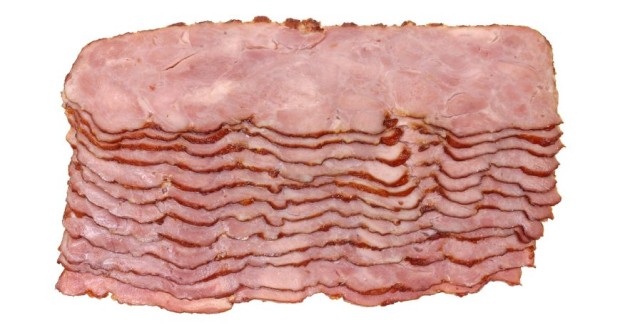If you frequently read health and diet articles, you probably have come across the term “processed foods,” usually used in a negative fashion. It seems that many of our favorite snacks and guilty pleasures have been processed, making them far less nutritious to eat. In order to be a more responsible shopper, it is crucial to be aware of the health effects and widespread use of food processing.
Food processing includes any foods that have been altered in some manner to make them more stable and convenient, thereby giving them a longer shelf life. To accomplish this, food producers “process” their goods by adding various chemicals and additives to them. Unfortunately, while these added ingredients may help the bottom line of food manufacturers, they can have serious consequences for your health if consumed in excessive quantities.
Below is a list of additives commonly used by food producers, along with their effects on the body:
Sodium – Sodium is heavily intertwined with salt, as it accounts for 40 percent of salt’s chemical makeup. Food companies use sodium to prevent items from going bad and spoiling. While this production method boosts the shelf life of numerous foods, ingesting high amounts of sodium can lead to chronic health problems, such as high blood pressure and heart disease. To make matters worse, many consumers are unaware of just how much sodium is in the processed foods they eat every day. Though the recommended limit of daily sodium intake is 1500mg, most Americans consume far more than this amount. The Mayo Clinic estimates that 75 percent of Americans’ total sodium consumption comes directly from processed foods. Sodium is heavily used in canned foods, processed meats and baked goods.
Trans Fats – Though it might be hard to believe now, trans fats (also known as partially hydrogenated vegetable oils) were at one time considered to be a safe replacement for saturated fats. In reality, just the opposite turned out to be true; trans fats are actually worse than their saturated cousins. This additive has the unenviable trait of increasing your body’s bad cholesterol while simultaneously depleting its levels of good cholesterol. This unhealthy type of cholesterol, called LDL cholesterol, can trigger heart disease by clogging the heart’s arteries.
Sweeteners – A diet heavy in sweeteners – both sugar and artificial sweeteners alike – can lead to an assortment of maladies, such as tooth decay, obesity and diabetes. Many sugary foods are also completely devoid of vitamins and nutrients, rendering them little more than empty calories that will bloat your waistline while sabotaging your health. Examples of artificial sweeteners include high fructose corn syrup, saccharin, aspartame , and sucralose.
Coloring Agents – Processed food is often injected with dyes and colors, with many of them being synthetic chemicals. These agents restore color lost during storage or from heat exposure. Some products, however, aren’t especially colorful in their natural state, and receive most of their coloring from man-made chemicals. In either case, coloring agents are used to make products more appealing to shoppers. These ingredients have been linked to hypersensitivity reactions in consumers, primarily children. People who are especially vulnerable to artificial substances have even developed ADHD, asthma and inflammatory skin conditions from ingesting coloring agents. Ingredients frequently used to color food include Yellow #5 (tartrazine) and FD & C Blue #2 (indigo carmine).
Preservatives – The two most widely used preservatives by manufacturers are butylated hydroxytoluene (BHT) and sulfites.
BHT has long been considered a controversial additive. Concerns about the chemical prompted the US government to sponsor a 1978 study of BHT, with the intent of determining if the additive was dangerous for human consumption. Though the study claimed that BHT was safe when ingested in low levels, it stressed the need for additional research. Studies in recent years have given researchers even more cause for concern, as BHT has been shown to induce stomach and liver tumors in animals. Given its prevalence in the North American food supply, many Americans may consume more BHT than is considered safe, causing some health experts to worry about the long-term effects of the additive.
Sulfites pose the biggest threat to asthma sufferers, as 5 to 10 percent of chronic asthmatics have adverse reactions to this preservative. Due to their dubious track record, the Food and Drug Administration (FDA) banned the use of sulfites in fruits and vegetables in 1986. In addition, the preservative cannot be used in foods that contain vitamin B1, as sulfite can potentially destroy this nutrient. Sulfites are still commonly used in a variety of foods; below is a partial list of items that are known to contain this additive:
- Baked Goods
- Canned Vegetables
- Potato Chips
- Trail Mix
- Beer and Wine
- Vegetable Juices
- Tea
- Condiments
- Dried Fruit
If you want to know if a product contains sulfites, look at its ingredients label – sulfur dioxide, potassium bisulfite, potassium metabisulfite, sodium bisulfite, sodium metabisulfite and sodium sulfite are all ingredients that contain sulfites.
Tips for Avoiding Processed Food
Given how much food companies process their products, it may seem like avoiding processed foods is an impossible task. Fortunately, you can reduce if not eliminate your intake of processed foods through careful shopping and dieting.
Buy Organic Fresh Fruits and Veggies – They might be tasty and convenient, but canned fruits and veggies are loaded with sodium, and are also high in sugar. Organic fresh fruits and vegetables, on the other hand, have no additives or chemicals to speak of.
Pass on Fast Food – One reason why fast food is so unhealthy is that its ingredients – such as hamburger meat, cheese and bread – are heavily processed. They are also chocked full of saturated fat and are high in calories.
Opt for Whole Grain Products – Many bread and pasta products are made with refined white flour, a highly processed ingredient that lacks nutritional value. Whole grain items are generally not processed, and are much better for your diet.
Cut Down on Processed Meats – Packaged cold cuts, such as ham, salami and bologna, are thoroughly processed, and as a result are filled with trans fats and sodium. Bacon, hot dogs and red meats are also injected with numerous synthetic chemicals. According to research by the American Institute for Cancer Research, heavy consumption of processed meats has also been linked to an increased risk of colon cancer. The same organization recommends that consumers eat less than 18 oz of red meat per week.
Processed foods can often be difficult to avoid, and are full of chemical substances that could pose a risk to your long term health. By being knowledgeable about the additives used in food processing, you can take significant steps towards improving your diet and overall health.
 Natural Knowledge 24/7 Educate yourself with nutrition, health and fitness knowledge.
Natural Knowledge 24/7 Educate yourself with nutrition, health and fitness knowledge.






